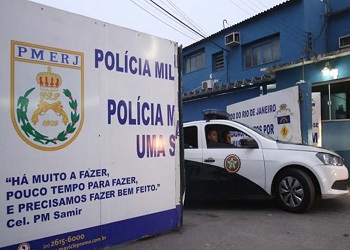Brazil’s state of Rio de Janeiro witnessed a massive operation aimed at capturing nearly 100 military police officers accused of criminal collusion, adding to a growing body of evidence suggesting that the state’s militarized security policy is failing.
Authorities in Rio de Janeiro issued arrest orders for 96 current and former military police officers as well as 71 suspected drug traffickers, the state’s Public Ministry said in a June 29 press release. Local media have described the efforts to secure their captures as the largest-ever operation targeting police corruption in Rio.
The officers — all from Rio de Janeiro’s 7th Military Police Battalion, which operates in the São Gonçalo municipality on the outskirts of the state capital — are accused of accepting bribes in exchange for providing a variety of services to criminals, including protecting drug traffickers, providing them with weapons and even carrying out kidnappings on their behalf.
Corrupt elements from various units, including tactical, mobile and community policing units similar to those implemented in the city of Rio de Janeiro would carry out patrols from Thursday to Sunday solely to collect their criminal dues, authorities allege. The value of bribes reportedly surpassed 350,000 Brazilian reais per week (over $100,000).
InSight Crime Analysis
While the scale of the latest case may be unprecedented in Rio de Janeiro, corruption within the state’s military police is nothing new. Moreover, police graft — in addition to widespread brutality against civilians — has sapped public confidence in law enforcement and contributed to the failure of the state’s current militarized security policy.
An official survey ordered in 2013 by the Justice Ministry and the United Nations found the Rio state military police to be the most corrupt in the country. One prominent example of the criminalization of security forces in Rio is the “milicias,” or militias, that have now developed into a major component of the local criminal underworld.
SEE ALSO: Brazil News and Profiles
The lastest case is further evidence that deploying militarized security forces to fight organized crime, a strategy that remains popular throughout the region, by no means reduces the chances for corruption. In fact, placing security officials with low-paid salaries — who not only operate but often live in dangerous favelas — on the front line of the fight against organized crime inherently creates an incentive for criminals with significant financial resources to attempt to co-opt or corrupt these officials, regardless (or perhaps because of) their substantial firepower and tactical know-how.

